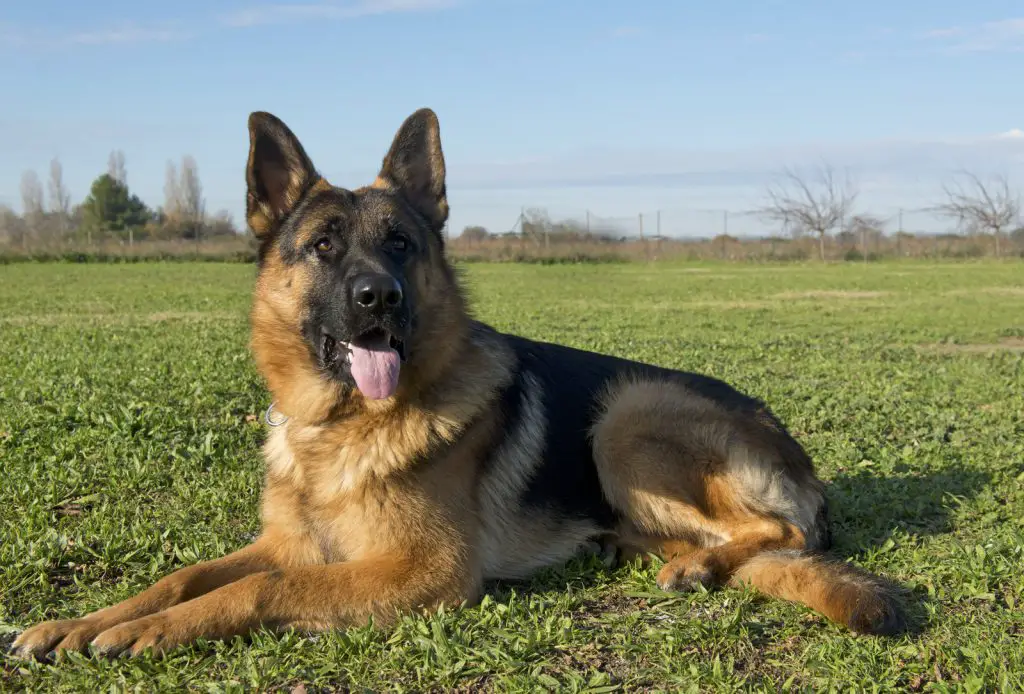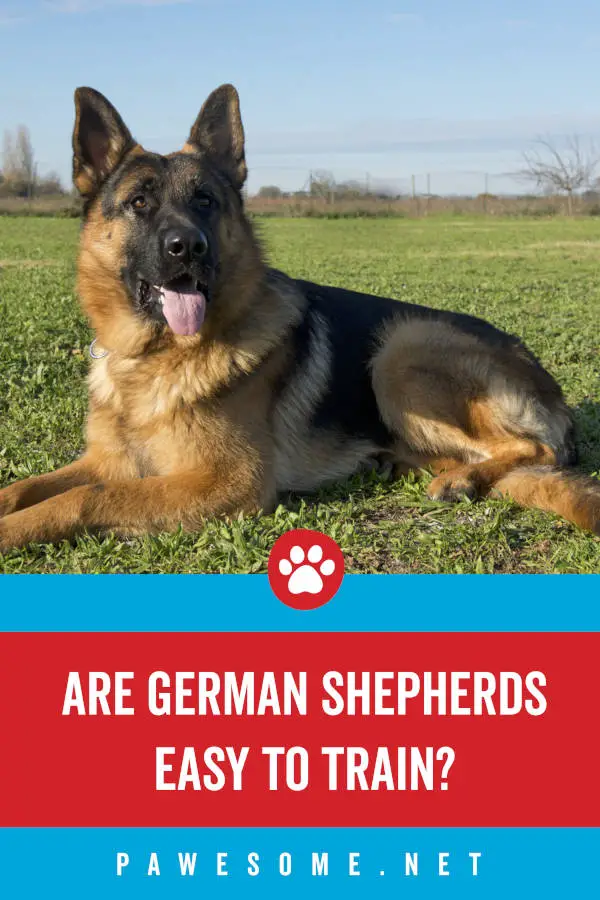
Contrary to popular belief that German Shepherds are big, scary dogs, GSDs — as they’re also known — have been the first dog breed to star in movies or even become service dogs in the United States. The main reason for this is that these are extremely intelligent dogs, which may also make them easier to train.
If you have a German Shepherd at home or are looking to bring in a pup that needs to be trained, here is all the information that you need to get started!
Why Training German Shepherds May Not Be a Difficult Task
In the past, German Shepherds were used for a number of different tasks, initially for guarding homes or herds, and more recently as police dogs, firefighting dogs or even drug dogs. If you are familiar with all of these settings, you may notice that they are highly sensitive and need some amount of training before a dog can be prepared to take on such work.
This is where a GSD’s intellect, determination, alert nature and impressive work ethic come into the picture.
Since the very beginning, German Shepherds have been trained to listen well, recognize any threats in the environment and react to these as quickly as possible. These are highly energetic dogs that run fast and want to do everything well. They pick up on commands quickly and view their owner as a leader that they have to follow religiously.
German Shepherds rank 3rd out of 137 breeds — after the Border Collie and Poodle — in terms of rankings put out in Stanley Coren’s book, The Intelligence of Dogs. According to the author, a German Shepherd has the capability of learning a new trick with as little as five repetitions, which is indicative of how easy it can be to train them.
The sections below will go into some detail about how a GSD can be trained, both as a pup and as an adult.
Training a German Shepherd Pup
As is the case with almost everything in the world, it is always better to start training the dog when it is young.
While there is no consensus on what is the right age to initiate training for a German Shepherd pup, it is generally around the time that the dog is 8 weeks old when you start training. Some of the steps that can help in the process are mentioned below:
- Handle Sensitive Areas — As dogs grow older, it may be difficult to handle them when their sensitive areas like the paws, ears and so on are touched. In order to avoid that, get them used to touching these areas when they are small.
- Establish the Trainer as the One in Control — Whoever is conducting the training should be considered the alpha in front of the dog. While trainers may be inclined to yell or react badly when something goes wrong, it is important that they stay calm, yet firm so that the pup knows who is in charge.
- Start with Basic Commands — Terms like “sit”, “say hello” and “stay” are the best ones to start with as you don’t want to overwhelm the puppy at this point.
- Use Treats for Reinforcement and Rewards — Repetition is a powerful tool during training and each time your dog gets something right, you can giving it a treat as a reinforcement for good behavior.
- Potty Training — After the puppy has eaten food, give it 10-20 minutes and then take it to it’s designated area where it can relieve itself. Try to keep the place constant as the exercise is repeated.
- Don’t Give Undue Attention to Bad Behavior — While your puppy may enjoy jumping on people, chewing on things around the house and maybe even bite a little, it is important that you make it known that it isn’t the right thing to do. Use distractions, bitter spray or make a loud noise if it bites.
- Socialize the Puppy — If you are keeping the German Shepherd with your family, it is important that it is socialized well so as to avoid ugly situations when other people come over. Take the little dog out often and introduce to other people as well as dogs so that it isn’t wary of strangers.
Training as an Adult
It may be considered ideal to start training your dogs when they are young, there are many cases where that hasn’t been done. That shouldn’t be a reason to worry, as you can start now.
- Start from the Bottom — Again, the simplest commands are the right place to start training. Use the same techniques that you would have if they were puppies, but make the sessions smaller with breaks.
- Quicker Rewards — At this stage, the rewards — either treats, their favorite toys or more — should come at a quicker pace. You can reduce the frequency once the dog has been consistent.
- Bring out a Clicker — While you don’t necessarily have to adopt this method, the clicker’s sound can be associated with a treat or praise and another action. This allows the dog to learn at a much quicker pace.
- Use the Same Techniques as Puppy Training — The cycle of repetition when it comes to training does not change with the dog’s age, so you need to use the same techniques but be more patient as there is some unlearning to be done for the older dog.
- Specialized Training Facilities — In case you don’t feel comfortable training an adult dog, you can take your dog to a specialized training facility and ask experts to train your dog. However, you must keep in mind that consistency needs to be maintained at home as well.
Mistakes People Make During the Process of Training
While you may have the best intentions at heart, there are many ways in which trainers can end up doing things that are counterproductive to the process of training your GSD. Some common mistakes are given below.
Being Too Forceful in Your Approach
Being the person in charge is not synonymous with aggression and this is where many people go wrong. Avoid yelling at your dog each time it disobeys a command and do not react too harshly when it fails to do something. German Shepherds never respond well to force and you will be putting yourself in danger of losing their trust by doing this. Be firm, but loving.
Losing Consistency
Avoid using many different methods of training at one time as it can end up confusing your dog rather than helping it in the learning process. Use commands similar to the ones that you start off with and ensure repetition even after they successfully obey you. Try to restrict the training to one member of the family, as different techniques and commands may confuse the dog further.
Not Taking Your Dog Out Often
A big mistake made by owners is not taking the dog out often enough. Use all opportunities to take your dog to the park or any public setting where they could get used to other dogs or human beings. This way, they will learn not to react badly to strangers.
Related: How Often Do German Shepherds Bark?
Things to Keep in Mind
Finally, there are a couple of things that you need to keep in mind when you are training your German Shepherd.
- Built-in-Breed Specific Function — These dogs are essentially considered working dogs, which means that they need to lead an active life to really prosper. Try to give your dog at least 30 minutes of physical exercise every day.
- Your Dog Is a Reflection of You — Your German Shepherd will see you in any setting and pick up on small things that you may not even realize you’re putting out. It is important for you to be a good example for the dog that you are training.
- They Communicate Differently — Your dog will not speak or communicate in the same manner as you, but they do pick up and react to any stimuli in the environment. Your body language and the tone of voice that you use are crucial.
- Positive Reinforcement Is Key to Positive Results — There is no way to lay enough emphasis on the fact that your German Shepherd will react best when you carry out training with the help of positive reinforcement. The dog will only grow to mistrust you if you keep yelling or resort to physical punishment.
German Shepherds have been used across the world for different purposes, whether it is as service dogs, guard dogs or just affectionate pets for the family. The best part about having a GSD at your home is that they are so much easier to train than many other pets, mostly because of their highly intelligent nature.
Keeping the tips and tricks mentioned in the section above in mind, you should not face any trouble in training your German Shepherd!

